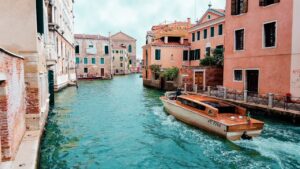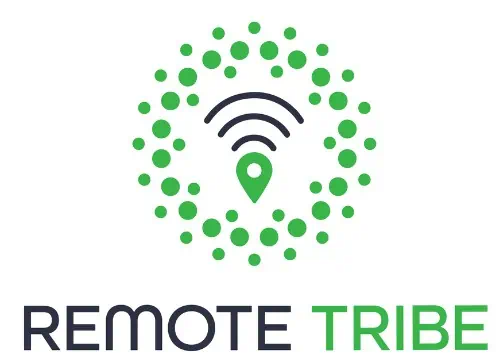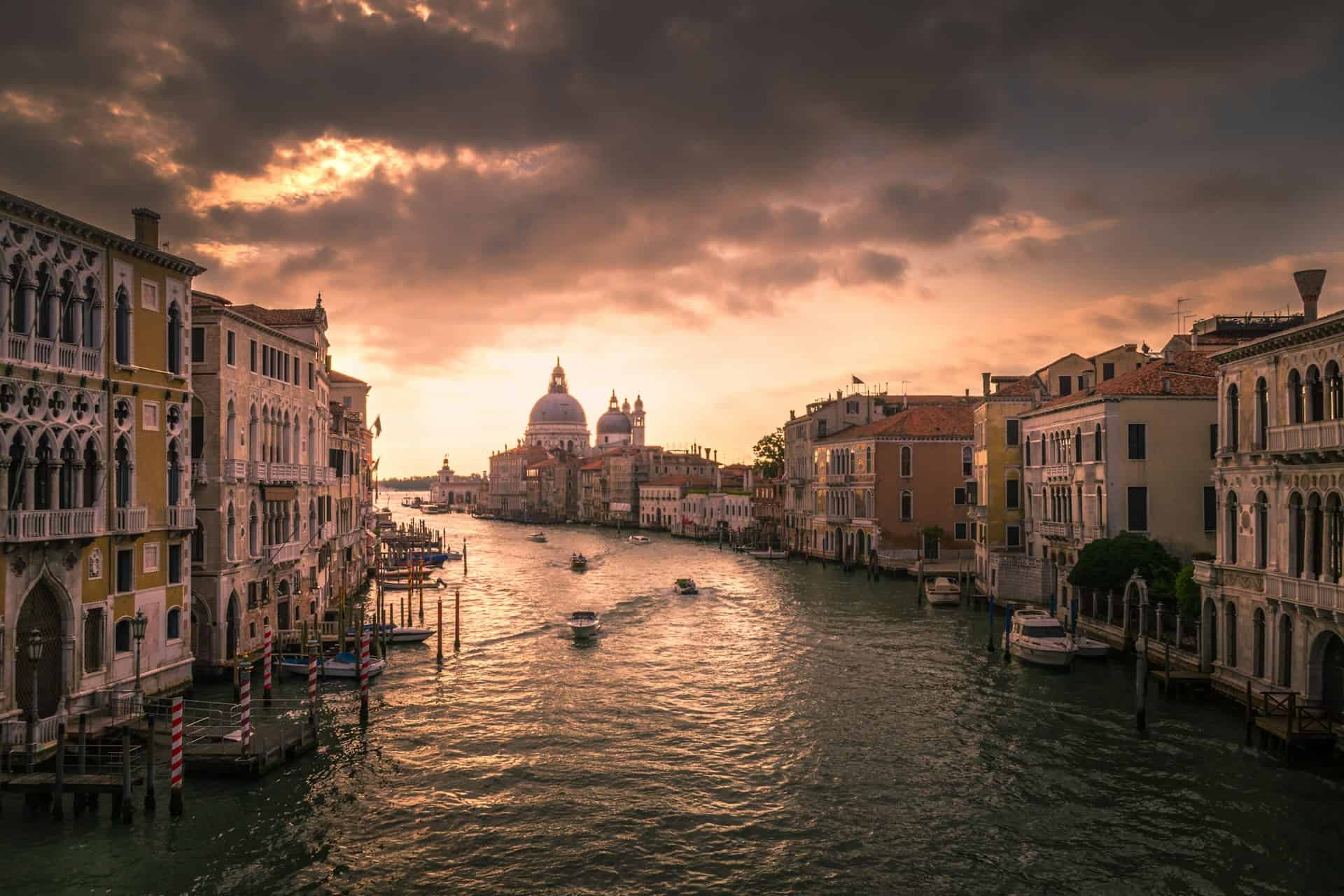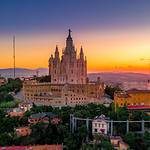Italy digital nomad visa

Everything you need to know about getting a visa and living in Italy For a medium period of time.
Visa Length
1 Year
Extension Possible
Unknown
Citizenships Accepted
Non-EU, highly skilled
Minimum Income Req.
€ 2,333 / month
Schengen Visa Access
Yes
Time to approval
Unknown




Brief facts about Italy

Italy is renowned for its breathtaking natural scenery, ancient towns brimming with history, and vibrant metropolitan hubs like Milan, Rome, and Florence. Of course, one cannot overlook the country’s culinary delights – the food in Italy is simply divine. And more recently, for the 1 EUR houses you can buy in some of the small towns!
As Italy embraces modern digitization efforts, it is emerging as a popular destination for digital nomads within Europe, offering a dedicated digital nomad visa. This is excellent news for remote workers and location-independent professionals.
Adding to the appeal, there will be no annual cap on the number of digital nomad visas issued, unlike other Italian visa categories. This flexibility opens up exciting opportunities for those seeking to embrace the digital nomad lifestyle in Italy.
,Successful applicants for the Italian digital nomad visa will have the option to bring their family members along for family reunification purposes, fostering a sense of continuity and familiarity in their new temporary home.
Language
Italian
Population
126 Million
Continent
Europe
Currency
Euro
Climate
mediterranean climate with dry, warm summers and moderate, wet winters
English Spoken
Yes
Major Cities
Rome, Milano, Naples, Turin
Location
Digital Nomad Locations in Italy
Milan, one of Italy’s most vibrant cities, has emerged as a prime destination for digital nomads and remote professionals. This city grows stronger with each passing year, thanks to its thriving commerce and technology sectors. This cosmopolitan hub provides a wealth of co-working spaces, enabling remote workers to seamlessly blend productivity with the city’s captivating charm.
Rome, the eternal city, is another good Italian spot for digital nomads and remote workers. As the capital of Italy, it attracts individuals from around the globe who seek to experience the rich Italian culture while pursuing their professional ambitions. The abundance of co-working spaces in Rome allows these modern-day wanderers to immerse themselves in the city’s timeless beauty while staying connected and productive through their digital workspaces.
Visa Details
Workers from EU countries can stay in Italy without a visa, but their companies must be based outside Italy.
On the contrary, workers outside the EU must apply for a visa.The visa is open to workers who are highly qualified and have an annual income of at least three times the minimum level required for exemption from participation in healthcare costs in Italy.
A “highly qualified” worker is not really clear what it means yet. The Italian financial paper “Il Sole 24 Ore” reports that this category includes everyone, “from university professors to circus employees, seafarers, and professional nurses.”. We’re still waiting for a full list of highly skilled jobs, as the Italian government likes to call them.
It seems there will be no limit on the number of permits issued annually – as there are with other kinds of visas under Italy’s ‘decreto flussi’ (foreign workers’ quota).
The worker will be issued a permit as a “digital nomad – remote worker” valid for one year, and it will be renewable each year if the conditions and requirements are met. Digital nomads and remote workers will be entitled to bring core family members (spouse and children under 18, parents under certain conditions), so this visa is family friendly and will work for family reunification too.
Digital nomads and remote workers will be provided with a tax code upon residence permit issuance.
We don’t have any information yet about whether you’ll have to pay local taxes, such as social security, welfare, and income.
What is known about social security coverage is that where bilateral agreements between Italy and the country of origin are in place, these agreements will apply. In the absence of such agreements, Italian social security and insurance coverage regulations will apply.
You must apply for the Italy digital nomad visa at an Italian consulate in your country of residence.
eligibility requirements
The digital nomad visa for Italy targets highly skilled remote workers and freelancers who are employed outside the European Union. Since the law has not yet been implemented, there are limited details available at the moment.
As of now, there are no restrictions based on nationalities, but more information is expected to be released as updates become available from the Italian government.
Most digital nomad visas also require applicants to submit a clean criminal background check, so Italy might ask for one as well.
Requirements for Italy Digital Nomad
- A Valid Passport
- Health Insurance valid for 1 Year
- 6 months+ remote working work experience
- Proof Of Employment Contract - Remote
- Must be highly skilled worker
- Minimum income of €2,335 / month
- Proof of health insurance
- Minimum 6 months of remote experience
- Clean criminal record
- Proof of secured accommodation in Italy
- More to come details to come....
The specific details about some of these requirements and their implementation are yet to be defined.
How To Apply for the Italy Digital Nomad Visa
Details are not known yet, but we will update this page as soon as they are public.
How Much Does It Cost to Apply for a Digital Nomad Visa for Italy?
We don’t know exactly how much the digital nomad visa for Italy is going to cost yet as the information has yet to be released. But we will update this page as soon as we know more!
Timeline to Apply for Italy Digital Nomad visa
Information for applying for the digital nomad visa for Italy is not available at the moment. Applications are not possible yet, so the timeline to apply is unknown.
Italy digital nomad visa Tax
We don’t have this information yet but we are expecting the Italian government to release it during Spring/ Summer of 2024. We will update the article.
Taxes in Italy - Overview
Italy has three charging brackets for taxes.
First there is the national income tax rate. This income tax rate is applied nationwide and is progressive. They start at a rate of 23% and go up to 43% for an income of around €55.000.
On top of this, there are regional income taxes. These vary depending on the region in which you are living and currently range from 1.23% to 3.33%.
Finally, there is a local municipality income tax rate. These currently range from 0% to 0.90%.
Therefore, depending on where in Italy you plan on living, your highest tax bracket can end up being somewhere around 45%.
FAQs About the Italy Digital Nomad Visa
Because digital nomad visas are a relatively new thing on the market, many people get easily confused between differences in paperwork; travel lengths, visa types, etc.).
Please refer to the FAQ below, which might answer some of these questions about the Digital Nomad Visa for Italy.
At present, the guidelines and procedures for obtaining the digital nomad visa for Italy remain unknown. The application process for this visa category has not started, leaving the timeline for accepting applications stil to be announced.
Yes, absolutely. In fact, the standard of living in Italy is high, and the Italian food has won the prize for the best cuisine in the world recently. Moreover, Italy is renown for its rich history, culture and traditions.
During the year long digital nomad visa, you will be able to take advantage of Italy’s top infrastructure. You’ll have access to affordable and high-speed internet connections throughout the country and enjoy their brand new 5G mobile network which is wide spread.
Once there, you might want to embrace the Italian lifestyle. Italian culture, from its renowned cuisine to its rich musical traditions and warm, welcoming people, offers an abundance of enriching experiences. Cultural immersion is arguably the most significant advantage of an extended stay in Italy.
Another great reasontto stay around is Italy’ sublime Mediterranean climate, featuring long, warm summers and mild winters. Unless you venture to the northern mountainous regions, you can stay in sunshine year-round while exploring this beautiful country.
Yes, there are other options to live in Italy besides the digital nomad visa.
One of them is called the self-employment visa, which allows foreigners to enter Italy for a short or long-term stay, to carry out a non-subordinate work activity.
To obtain it, the non EU citizen must possess the professional and moral requirements established by the law, as well as those of Italian citizens, to carry out the same activity.
The Flows Decree allows entry of non-EU self-employed workers into Italy for these 5 categories:
- Entrepreneurs investing €500k+ and creating 3+ jobs
- Freelance professionals
- Corporate administrators/controllers
- Famous/highly qualified artists
- Those establishing innovative startups
Entry requires meeting the documentation and requirements specified in the Decree.
While the digital nomad visa permits you to reside in Italy, it does not confer citizenship status. Nonetheless, the Italian government has launched a Golden Visa program, which can pave the way for permanent residency and eventually grant you Italian citizenship.
All the details about the Italian Digital Nomad Visa should come in the first half of 2024.
A digital nomad is someone who lives a nomadic lifestyle and works remotely from outside their native nation using technology. A digital nomad visa is a document or programme that allows someone to work remotely while living in a nation other than their permanent residency.
Most nations that award digital nomad visas do not use the word “digital nomad visa,” instead giving their programmes a distinctive name, such as the Cayman Islands’ Global Citizen Concierge Program, or using more broad phrases like residency permit or “long stay visa”. However, keep in mind that these visas may not specifically target digital nomads.
Newsletter
Get our best tips on location independent lifestyle FOR FREE!
No Spam 🙏🏻











